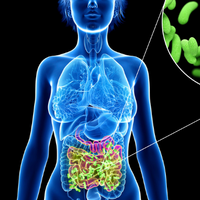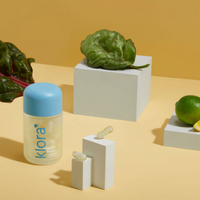Gut Food - 5 Foods That Are Good For Gut Health
Your gut health mainly depends on your diet and other common habits. You don't need to spend a fortune to optimize your digestive system. By consuming an ideal amount of prebiotics on a regular basis, you could ensure regular bowel movements and stable digestion. There are plenty of vegetables and other plant-based derivatives that are packed with fiber, which is one of the most important nutrients for the human body. Here's a list of five simple foods that may help your gastrointestinal tract and other systems. You could eat some of the items raw or along with other delicious meals according to your unique tastes.
1. Sauerkraut
Considered one of the most popular types of side dishes in German cuisine, sauerkraut has certainly captivated the American market in recent years. This finely chopped cabbage is actually one of the healthiest naturally occurring probiotics. Having a distinctive sour taste, sauerkraut is heavily fermented. The fermentation process indicates a large content of probiotics, which are beneficial bacteria for your gut. The bacterial colonies regulate digestion deep inside the intestines for proper bowel movements. Besides having digestive benefits, sauerkraut is quite rich in dietary fiber. You can enjoy this traditional cabbage with lots of popular dishes, including classic hot dogs and the New York City-style Reuben sandwich. Of course, don't forget to try authentic sauerkraut with traditional frankfurters and other types of European sausages.
2. Kimchi
If you enjoy Asian cuisine, then you will surely appreciate the health benefits of kimchi. This classic side dish is widely integrated into lots of different Korean dishes. Napa cabbage and Korean radish are the main ingredients of kimchi. As expected, this food has a distinctive sour taste because of the fermentation. However, kimchi has a certain spice level that surely stimulates the taste buds. When properly fermented, kimchi essentially becomes an effective probiotic. The cabbage also serves as a prebiotic, which feeds the gut-friendly bacteria. When you visit a restaurant specializing in South Korean cuisine, you will find plenty of kimchi-based items on the menu.
3. Jerusalem Artichoke
Although it's native to North America, the Jerusalem artichoke obviously adopts its name from the Middle East. This sunflower species is highly prized for its prebiotic properties. More specifically, this plant-based food is rich in inulin, a type of fiber which has been shown to improve gut health. Besides stimulating the growth of probiotics, Jerusalem artichoke can support complete digestion of heavy meals. You can eat this food raw as a full root directly from the farms. Jerusalem artichoke could also be cooked into a soup or mashed form as a side. When integrated into Mediterranean dishes, this sunflower derivative is typically mixed with olive oil.
4. Onions
The onion is one of the most cultivated vegetables in the whole world. For thousands of years, humans have been consuming this simple bulb root. In modern times, the onion has been widely recognized for its potent health effects. First of all, this vegetable contains a high concentration of inulin, which is a type of substance that's considered a prebiotic. By eating enough onions on a regular basis, you could improve your gut health and other biological functions. For example, the bulb may contain significant traces of various phytochemicals, which have been shown to boost immunity and cardiovascular heath. Additionally, the onion has some antiseptic properties for eliminating and neutralizing harmful bacteria. From sandwiches and salads to steaks and mashes potatoes, chopped onion makes a great addition to an array of simple dishes.
5. Asparagus
Considered a spring vegetable, asparagus is one of the most popular prebiotics on the market. You could easily find the elongated green shoots at local supermarkets and farmers' markets. Containing glutathione, asparagus may provide anti-cancer immunity. You'll also find a significant amount of vitamin K in this vegetable. Some minerals that are naturally infused inside asparagus include iron, calcium and manganese. The spring vegetable is quite tough and hard in raw form. You should properly cook asparagus at the correct temperature to soften the inner flesh and outer shell. Using an oven or boiling pot, you will easily prepare and enjoy this popular prebiotic. The well-done asparagus should be easy to chew and digest with any meal.








0 comments